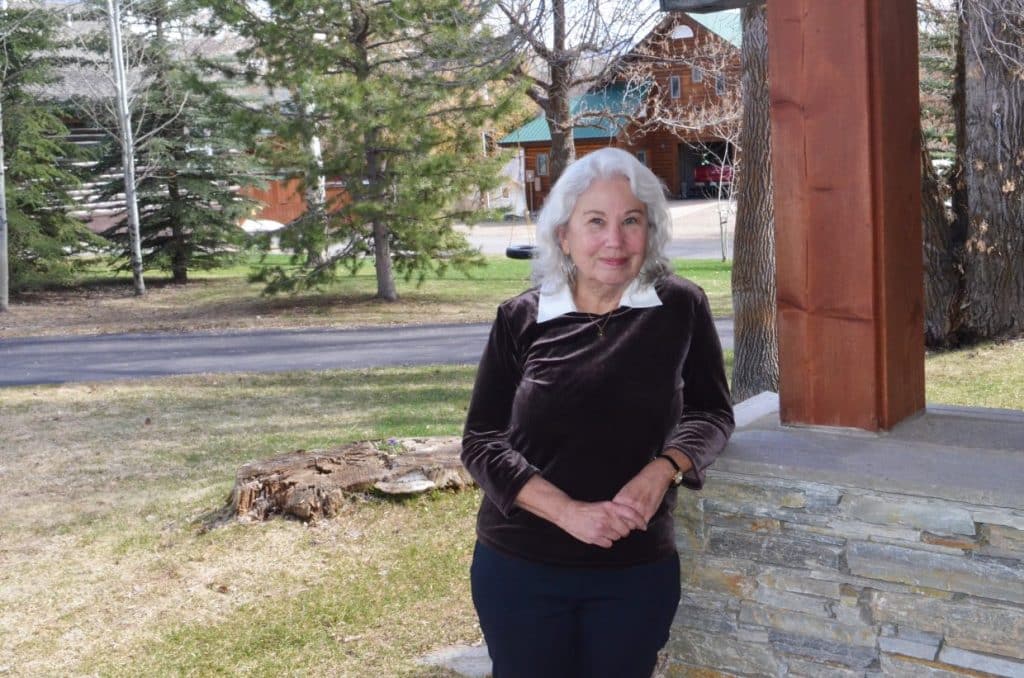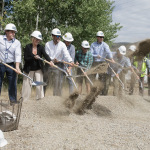Q&A with Mayling Simpson, Democrat candidate for State Board of Education

Daily file photo
Q. What do you think the state board of education’s role should be in providing direction to local school districts on issues of statewide significance, such as COVID-19 protocols, and how will you support schools to create plans for the spring semester of this year?
A. Members of the State Board of Education need to be well-informed about the hardships and successes of schools in their district. They should be open to receiving requests for help in problem-solving. The State Board members should have a good understanding of how to prevent transmission of COVID-19 at schools and an understanding of how COVID-19 is impacting teaching and budgets.
Providing education to our public-school students has become much harder and more expensive as a result of COVID-19. Also, the stakes are much higher. Not only are schools expected to provide the same high-quality education, but they are also expected to keep students, teachers and staff safe from contracting this dangerous disease. Schools and districts are experiencing many new hardships, more teacher resignations and teachers being expected to teach both virtually and in-person, sometimes at the same time.
I would support schools directly by discussing their plans and being sure these plans were based upon the best available scientific public health data. Administrators should have clear guidance based on science of when to open schools, partially or fully, and when to close them. I would visit schools upon request to talk to administrators about their plans.
Q. What is the role of the partnership between state and federal education departments?

Support Local Journalism
A. State departments of education are independent of the federal department of education but do maintain a partnership with the federal government for funding special programs. State departments decide whether to accept funding from the federal government for programs. The federal department of education influences state education policies by funding programs that follow federal guidelines. Also, some federal government agencies, such as the National Science Foundation, publish teaching strategies and educational materials that may be used by states. All states have local control of their education systems. In some states, such as Colorado, local control extends to school districts. The federal government currently provides 6.5% of school funding in Colorado. Colorado is not required to accept this funding if it is tied to programs that the state does not want or need. Colorado is required to follow federal law in schools with regard to race and gender equality and equity.
Q. How would you deal with federal education policy that you do not support or agree with?
A. First and foremost, I support local control of education policy. The Colorado State Board of Education is not required to follow federal policy unless it is enshrined in equal protection under the law. If I do not agree with a federal policy, I would first gather information from school districts on how the policy would affect them and from various education institutions that study these questions. I would summarize the information I gathered into a paper to be shared with my fellow board members for further discussion. Should it come to a vote and I did not agree with the federal policy, I would vote no.
Q. What is teachers’ role in the conversation about public health and reopening in the COVID-19 world?
A. Decisions regarding opening, closing and reopening of public schools during the time of any epidemic should be based upon scientific understanding and local data on the disease. Yet, COVID-19 affects many other aspects of the school environment, which is where the teacher’s role in the conversation is so important. Today many teachers must teach both virtually and in-person at the same time. Many have an increased teaching load because a school has lost teachers due to COVID-19. Teachers must uphold mask wearing, social distancing and the timing of regular hand washing. Some teachers feel at increased risk from COVID-19 and need to take special precautions for themselves. In this COVID world, teachers are under increased stress. We need to hear from teachers, what they are experiencing and the changes, if any, they would like to be made. Teachers are on the frontline of both education and control of this epidemic. Of course, their voices should be heard.
Q. What do you believe about local control in Colorado? How would you deal with a local board question or decision that you did not agree with?
A. Local control in Colorado is our tradition — we are a local control state. Local control can have pros and cons, but in general, people closest to the problem are usually in the best position to find the solution. School districts know the culture and economy of their community and adapt accordingly. Education systems need to meet the needs of the local culture and economy, while recognizing that the world is always changing, and we need to remain adaptable to change. The nimblest responses are found at the local level.
As for reacting to a local board decision that I did not agree with, I would first try to understand the local point of view and try to find common ground and a win-win solution. Listening to the opposite point of view is key in finding solutions to complex problems. It is important to give people time to think through their beliefs and assumptions, and so I would try to slow down the process so that everyone has time for thought and meaningful discussion. I would only object to decisions that deprive children of equal access to quality education or that deteriorate funding or other support to a school system.
Mayling Simpson is the Democrat candidate running for State Board of Education, representing Colorado’s 3rd Congressional District.









